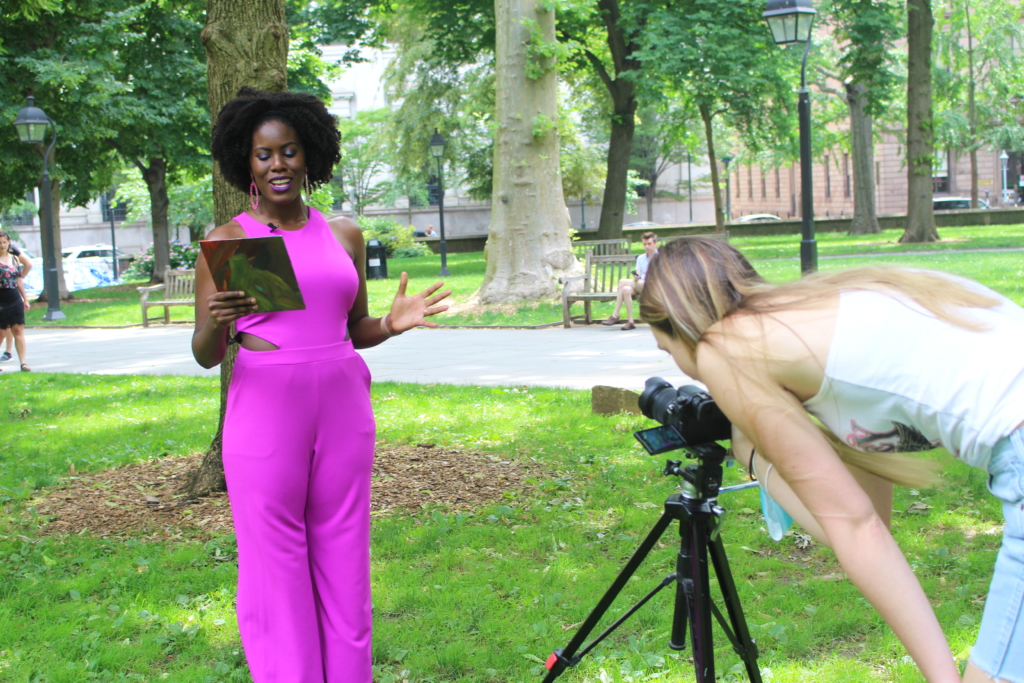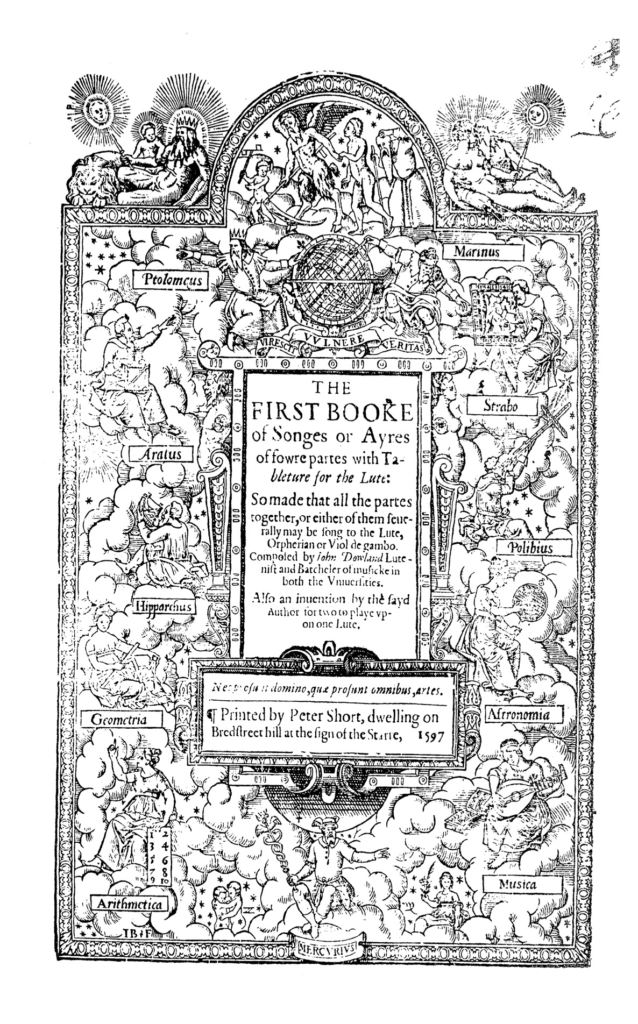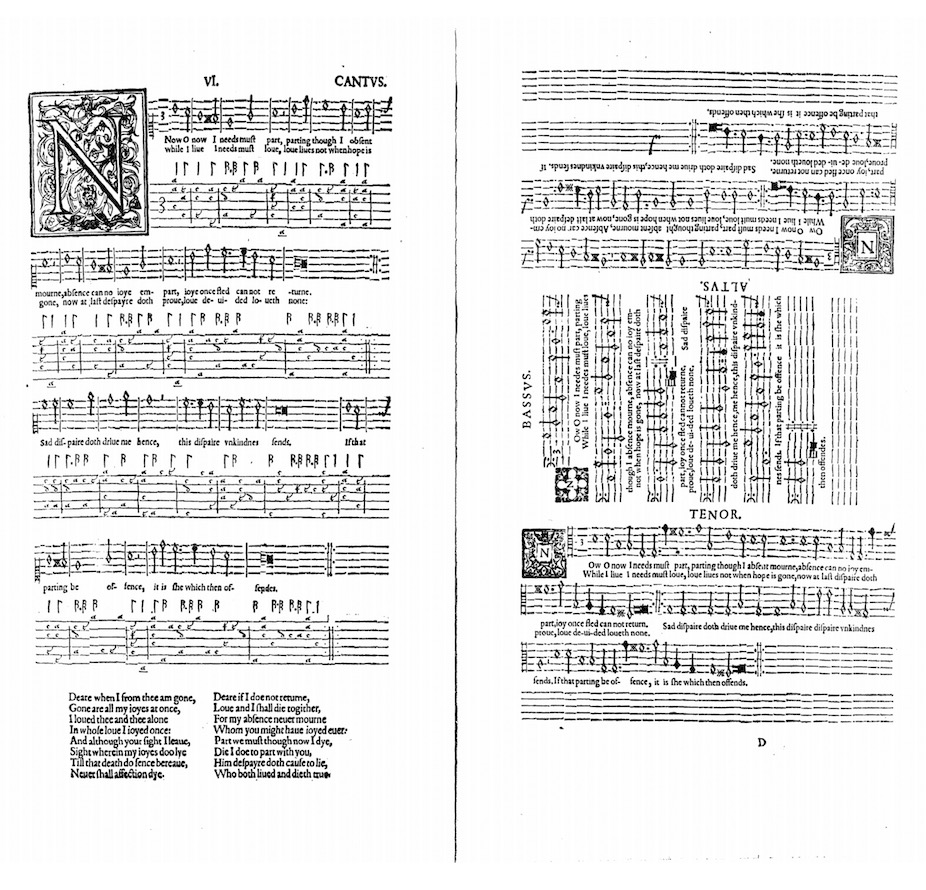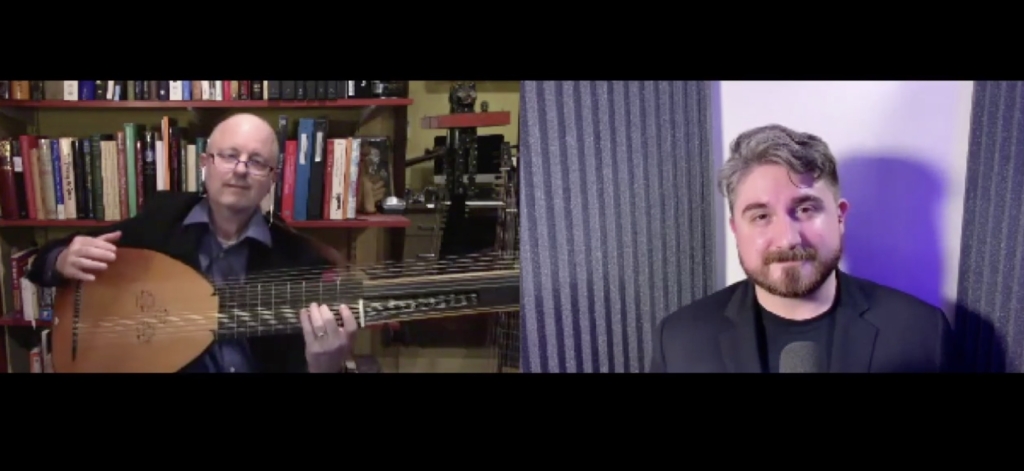“Music! That all-persuading art, Which soothes our griefs, inspires our joys, Soft love creates, stern rage destroys, And moulds at will each stubborn heart.”
Overture text, by Newburgh Hamilton, to G. F. Handel’s opera Rinaldo (1711)
It’s a brilliant late-spring morning. I meet up with Tempesta di Mare Executive Director Ulrike Shapiro and videographer Ella Greene in Philadelphia’s Washington Park, one of the quiet, green city oases that have provided reality checks during months of Covid pandemic shutdowns. Today is one of the first days mask restrictions are lifted. A sense of relief is almost palpably rolling off park visitors as they mill around, walk dogs, check out the radiant flower beds and smile at each other with their whole faces visible. Ulrike and I greet each other in-person and hug for the first time since 2020.
The lover’s guardian

It’s a perfect cap to the idyllic scene when actor Jaylene Clark Owens, dressed in brilliant fuchsia and delightfully maskless, joins us, takes her place under a huge oak tree, strikes a pose and launches into a poem about love, Lady Mary Wortley’s 1805 “Hymn To the Moon”: “…Thou conscious witness of unknown delight,/The Lover’s guardian, and the Muse’s aid!…” The sun shines and our hearts open.
Jaylene is taping video inserts for the virtual version of “English Orpheus,” Tempesta di Mare’s final show of the season. The show’s title is an English nod to the Greek god who had such enormous musical powers that even rocks and trees crept in to listen to him. In Washington Square, the trees seem to be staying put. But being out and around people after 15 months of isolation is magic enough.
Getting our social mojo back
“English Orpheus” provides a tonic for any lingering shut-in blues with love songs and love poems from the Elizabethan, Restoration, and early 18th-century periods, with tenor Jacob Perry providing Orpheus-like vocals, Jaylene performing poetry, and the Tempesta di Mare Chamber Players on everything else. It’s art from a time when English wordcraft and songwriting reached a peak of eloquence—particularly on the subject of love. It has John Dowland, Henry Purcell, Shakespeare, Tempesta di Mare and the tender passion. What could be better for getting our social mojo back?
“Sweeter than roses, or cool evening breeze, On a warm flowery shore, was the dear kiss…”
Lyric by Richard Norton to song by Henry Purcell, “Sweeter than roses” (1695)
Literature of the Elizabethan era is called Golden Age for good reason and English songwriting wasn’t far behind. When Henry Purcell died in 1693, the posthumous collection of his songs, Orpheus Britannicus (where Tempesta’s show title came from), eulogized his “…peculiar Genius to express the Energy of English Words, whereby he mov’d the Passions of all his Auditors.” Purcell’s songs are still essential singers’ repertory.
Dowland: Master of melancholy

Photo: International Music Score Library Project (IMSLP) /Petrucci Music Library
But John Dowland may be the show’s resocialization poster boy. Renowned then and perhaps the best-known composer of early English song now, he was the master of melancholy—a characterization himself admitted when he named one of his pieces “Semper Dowland, semper dolens” (“Always Dowland, always mournful”). Hearing him in public provides a special frisson to all of us who’ve been waiting impatiently for clubs and music venues to reopen, as sad songs are particularly enjoyable when heard live.
But a side detail in the Dowland story gives his songs an odd relevance in 2021’s pandemic reemergence. When his First Booke of Songes or Ayres were printed in 1597, his (1597), it was England’s first “table book,” a tidy little volume that gave music-buying customers two different options for playing, one solitary, the other with company and both on the same page. Just for fun, here in 2021, we can think of these two versions as “before” and “after.”
Playing alone…

The “before” on the left-hand side of each two-page spread in the First Book (and later publications, too) prints the song and a lute entablature on one side for singing and playing alone—what so many musicians have had to do in the last 15 months.
…playing with others
The “after” is printed on the right-hand side and has individual parts for alto, tenor and bass so that a three-part consort could join in—like, for instance, now with the mask mandate lifted.
And in a stellar bit of graphic design, the consort parts are laid out on the page radially. One is rightways-up, one is sideways, and one is upside-down so that people playing together can pull up around a table, put the book in the center, and each get a good sightline on their part. It’s adorable.
Dowland has two songs on Tempesta’s program and Tempesta is playing each in different instrumentation—in effect saluting our reemergence from left-hand-side confinement to right-hand-side company. The first song, “In darkness let me dwell” is in “before” configuration—Jacob soloing and Richard Stone on lute. But the second Dowland song, and the program’s finale, “Now, oh now, I needs must part,” is in the “after” side, with the whole ensemble playing together at last and making music the way they love: shoulder to shoulder, heart to heart.
“Music for a while shall all your cares beguile….”
Lyric by John Dryden and Nathaniel Lee from Oedipus, 1679, set to incidental music by Henry Purcell
“English Orpheus” itself is a before-and-after show. Despite its perfect timing “English Orpheus” wasn’t supposed to happen now. It was supposed to happen in May 2020 but became the first Tempesta di Mare concert to be postponed for the pandemic shut-down.

After a second try in December, “English Orpheus” was postponed again (although Jacob and Richard provided an online preview via low-latency networking software). Now—finally!—it’s happening—and with the very welcome addition of Jaylene’s contribution with poetry.
And now is just when we appreciate it most. You’ve got to love that.
Anne Schuster Hunter is a writer, teacher of creative writing, and art historian in Philadelphia. www.anneschusterhunter.com
